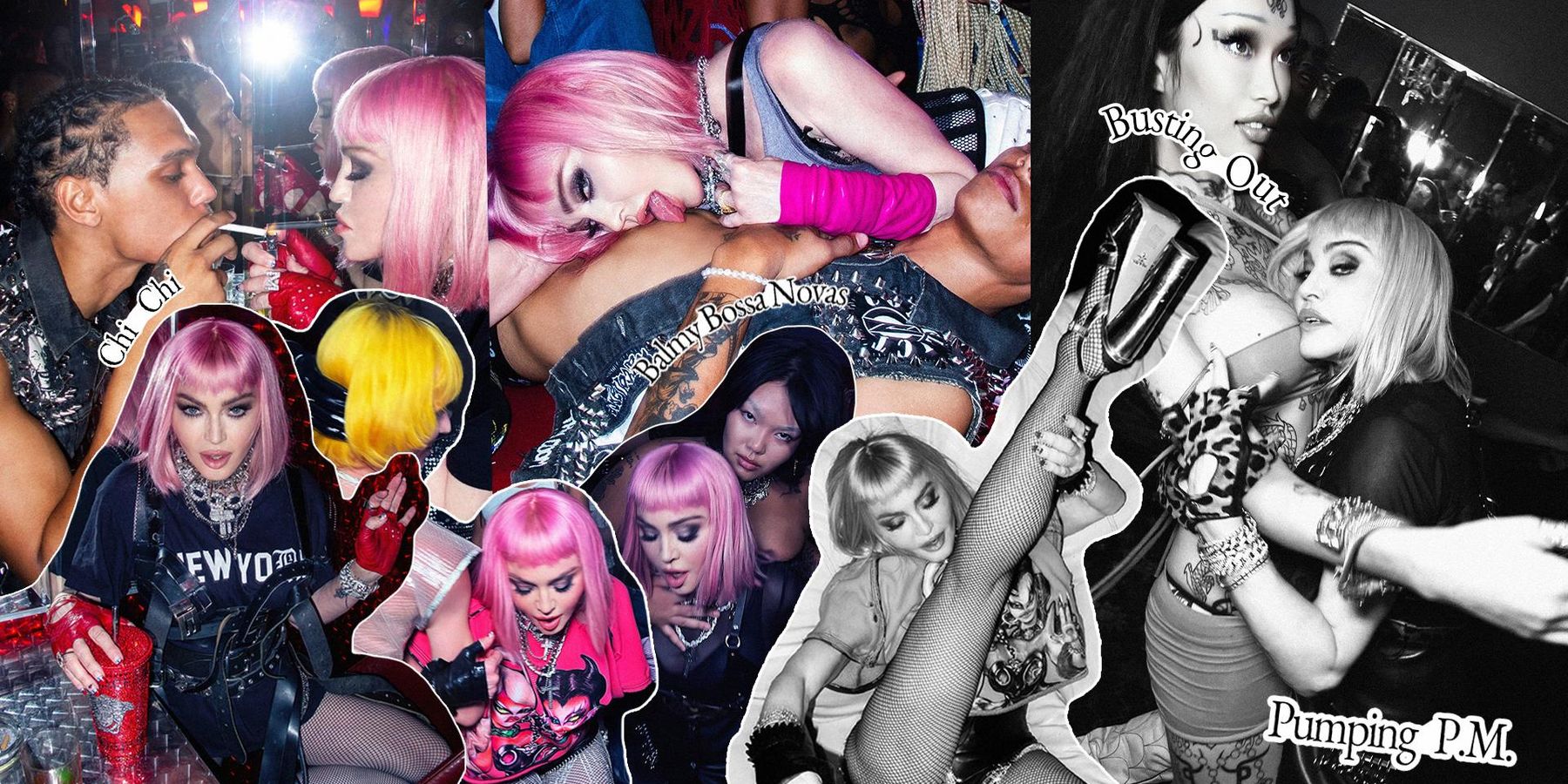
Madonna Is the Wildest Party Favor
Photography by Ricardo Gomes / Interview by Nile Rodgers / Story by Patrik Sandberg / Styling by Eyob Yohannes / Hair by Andy LeCompte / Makeup by Wendi MiyakeAug 18, 2022

"Dance and sing, get up and do your thing..." It's been 40 years since Madonna first sang those lyrics on her debut single, “Everybody,” lyrics which open the two-collection compilation Finally Enough Love and Finally Enough Love: 50 Number Ones, culminating, well, exactly what it sounds like.
When dance virtuoso Honey Dijon joined Madonna on the 2019 remix for "I Don't Search I Find," it marked the 50th Madonna track to hit No. 1 on the Billboard dance chart, making Madonna the first and only artist to net that many toppers on any single chart in history.
Naturally, a compilation was the least she could do. Finally kicks off a multi-year initiative to reissue all her past albums, remastered, which will include previously unheard versions and rarities so mythic the reveal of them could send certain corners of the Madonna fandom into bouts of foaming-at-the-mouth hysteria.
But for some of the younger generation discovering the Queen of Pop now (a pain shoots through my temple as I write this) — perhaps, for example, hearing the Sickick remix for "Frozen" going viral on TikTok or singing along to Saucy Santana and Madonna on the new barn-burner of an interpolation track called "MATERIAL GWORRLLLLLLLL!" — the compilation is a flawless primer on her absolutely essential and enduringly innovative body of work.
The crossovers between Madonna's pop hits and the ones that peaked on the dance charts is so seamless it's practically instructive. Her success as a writer, producer, singer and performer is perennially linked to getting people moving. "Not conscious, not premeditated," Madonna says, calling from London. "It was just intuitive I guess."
In an era when everyone has instant access to every subculture at the tapping of a screen, it might be easy to forget that Madonna's artistry was formed in the analog cauldron of New York City nightlife in the ’80s, at a crucial time when disco and punk were clashing, freestyle was emerging and dance-pop was just beginning to form its own postmodern identity — one Madonna herself would be at the forefront of establishing.
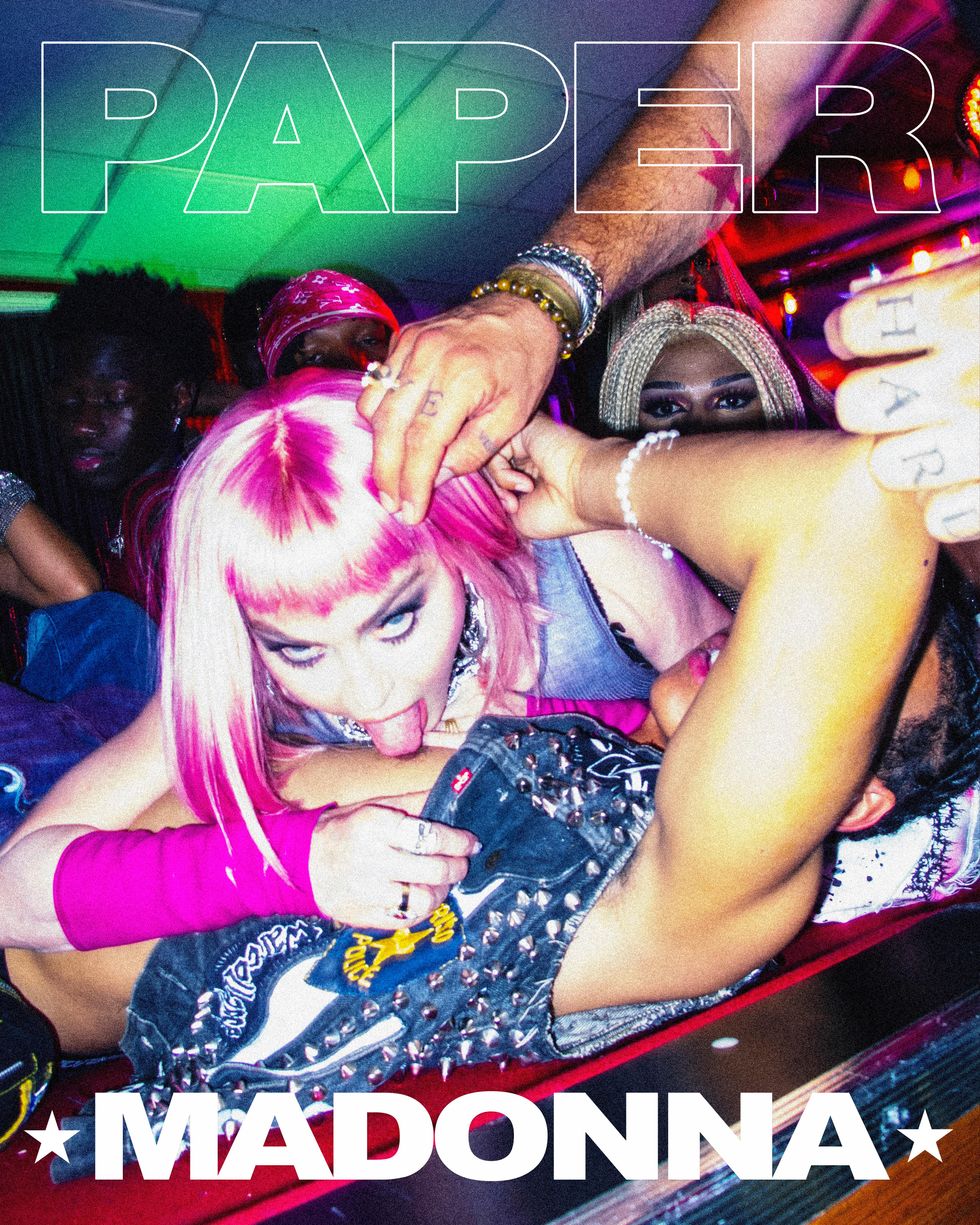
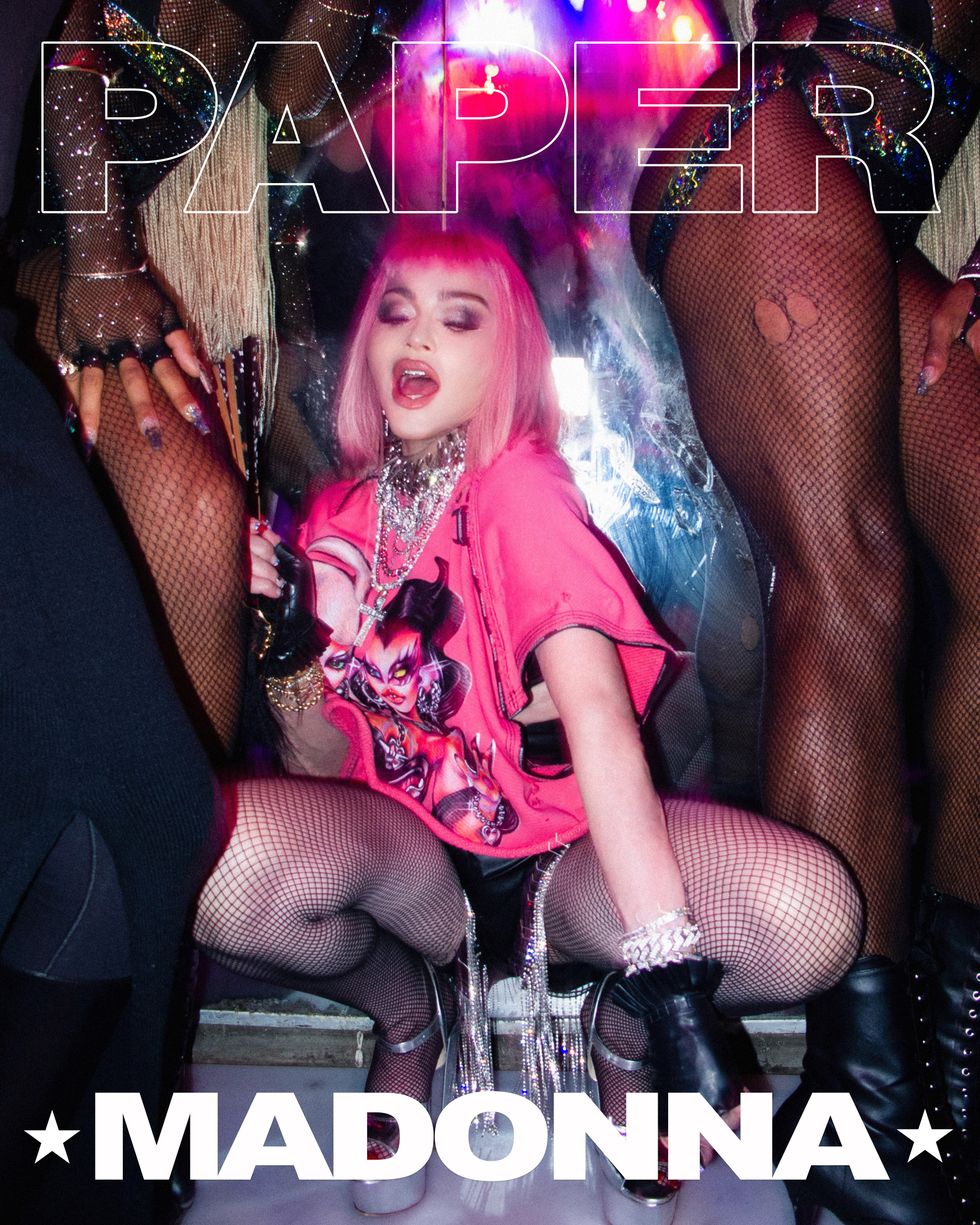
Going out and experiencing her music with a crowd has remained a guiding impulse ever since. Early August, she staged a surprise roller disco party in Central Park at Nile Rodgers' DiscOasis. In addition to being an unforgettable event, it also felt like a cosmic reunion for the legendary collaborators (Rodgers, the co-founder of disco godheads Chic and all-around Hall of Famer wherever Halls of Fame exist, remains the only sole producer ever to be credited on a Madonna album, 1984's Like a Virgin).
"In those days, you could just go to a club and get a DJ to play your song if they liked it," Rodgers says. "It was like being in the Roman Colosseum. If people danced, it was like a thumbs up or a thumbs down. You would get feedback right away. People would come to the dancefloor, leave the dancefloor or stay on the dancefloor."
As Beyoncé and Madonna's "BREAK MY SOUL - THE QUEENS REMIX" and Rodgers' co-written Beyoncé track "Cuff It" storm earbuds, laptop speakers, group chats, TikToks and, yes, even real flesh-and-blood club spaces, it's safe to say the Romans have made a democratic decision to stay on the floor for the duration.
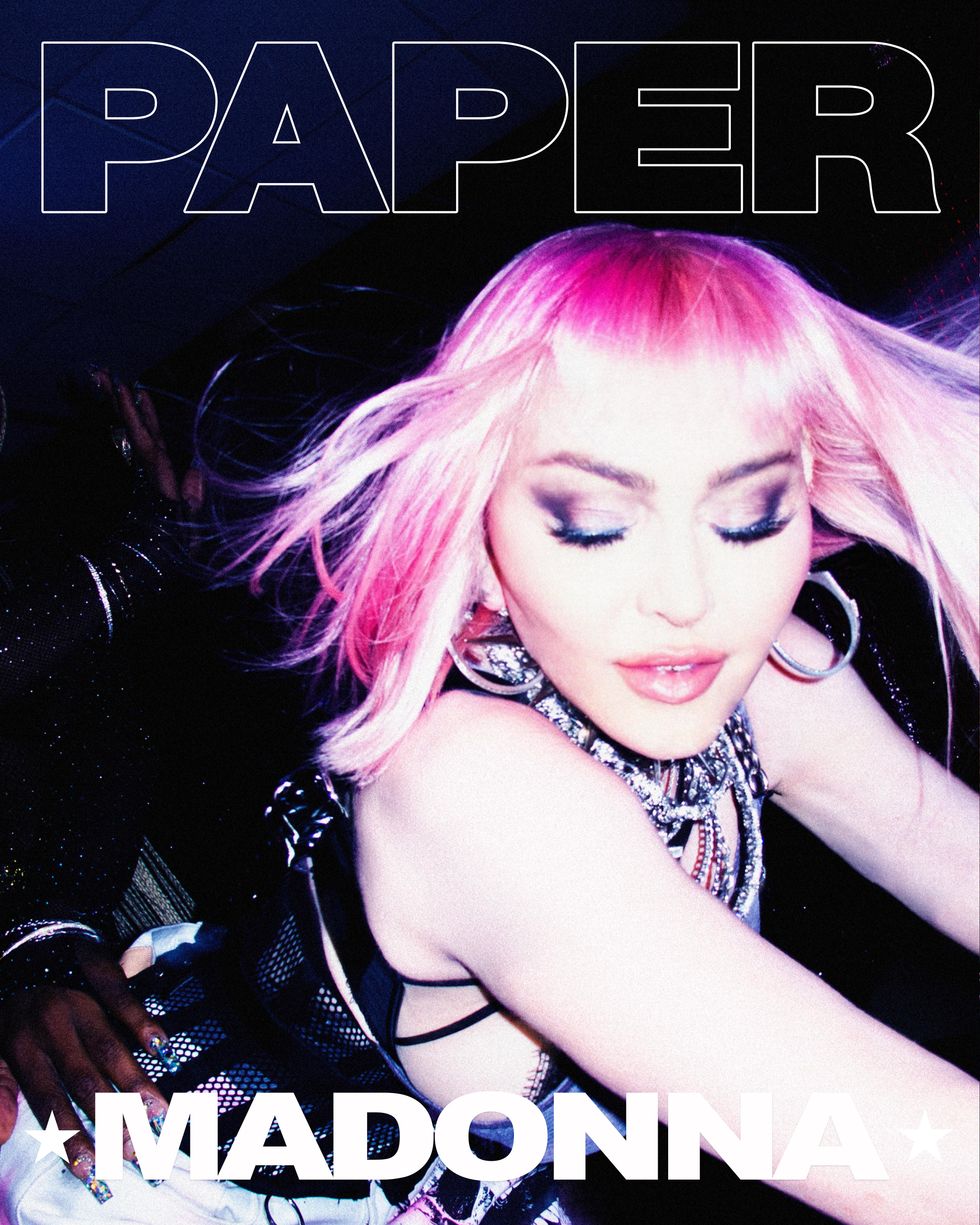
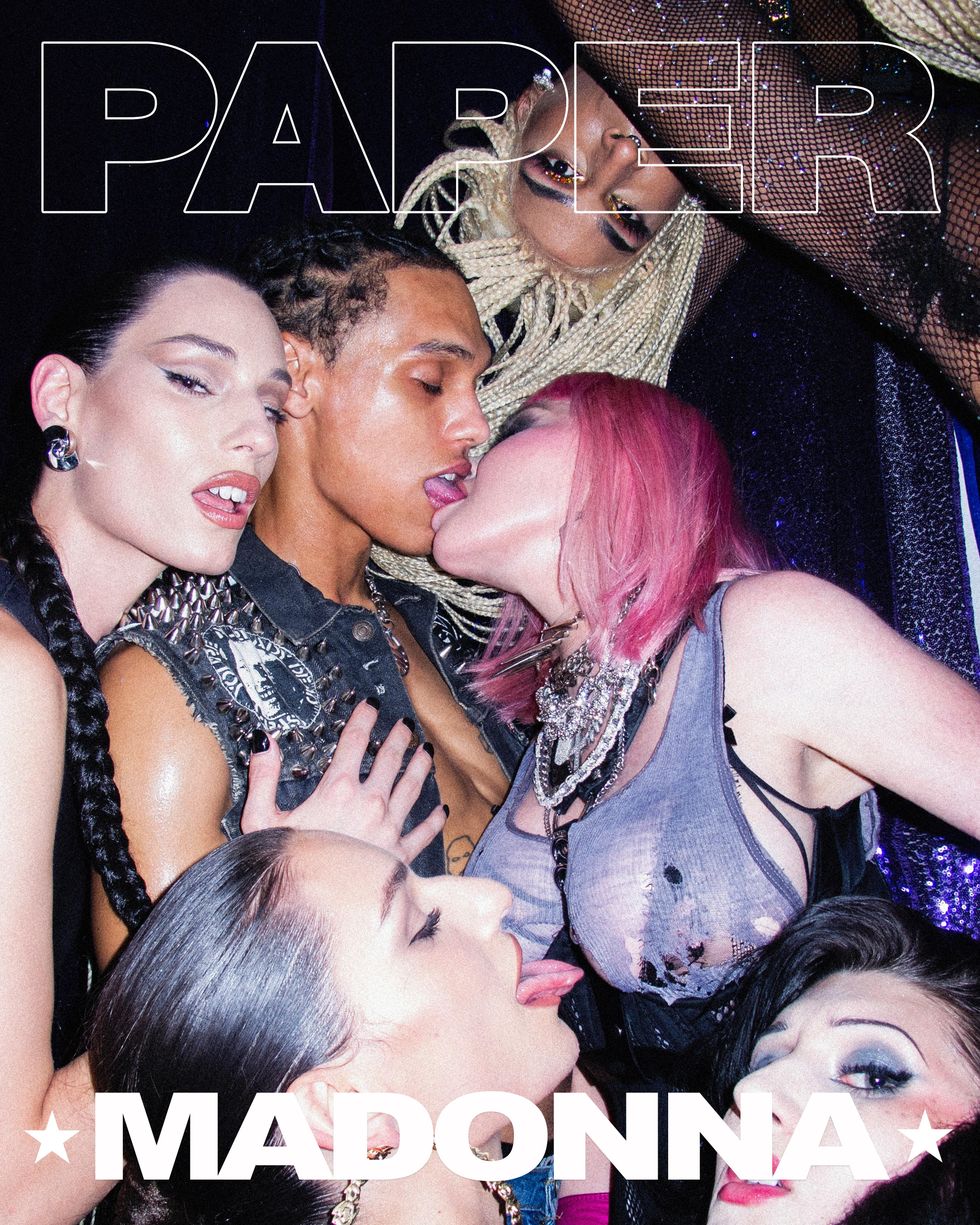
What strange magic is it that imbues certain artists with preternatural instincts? How does one stay relevant effortlessly? How do you conquer the only trial that matters, that fickle test of time? Madonna and Nile ruminate on their joint and individual empires of sound, and how they constructed a civilization of pop that even the Romans couldn't have built.
Madonna: Speak to me. Nile, is that you?
Nile Rodgers: Yes it is.
Madonna: I don't recognize you without your roller skates on. But I do recognize your laugh.
Nile: [Laughs] Yes you do!
Madonna: So what's new, pussycat?
Nile: I'm down in Miami.
Madonna: It must be hot as balls down there!
Nile: Well, it is, but did you hear it's 102 degrees in London?
Madonna: Yeah, I'm in London!
Nile: Oh, so you know!
Madonna: I'm in London and I'm in a Georgian house with no air conditioning and yes, I'm very hot. But it's hot everywhere. It was just hot when I left New York.
Nile: We lucked up on the night of your party. That night was the shit. The day before was absurd.
Madonna: Anyway, we don't have to talk about the weather, that's so tedious. Let's talk about music.
Nile: It was great to see you, it was great to hang with you. I loved your family, it was awesome.
Madonna: Thank you so much. So Patrik are you going to interrogate us?
Patrik Sandberg: Yes, I've been waiting my entire life.
Madonna: [Laughs] Where are you now?
Patrik: I'm in LA, I moved from New York a couple years ago.
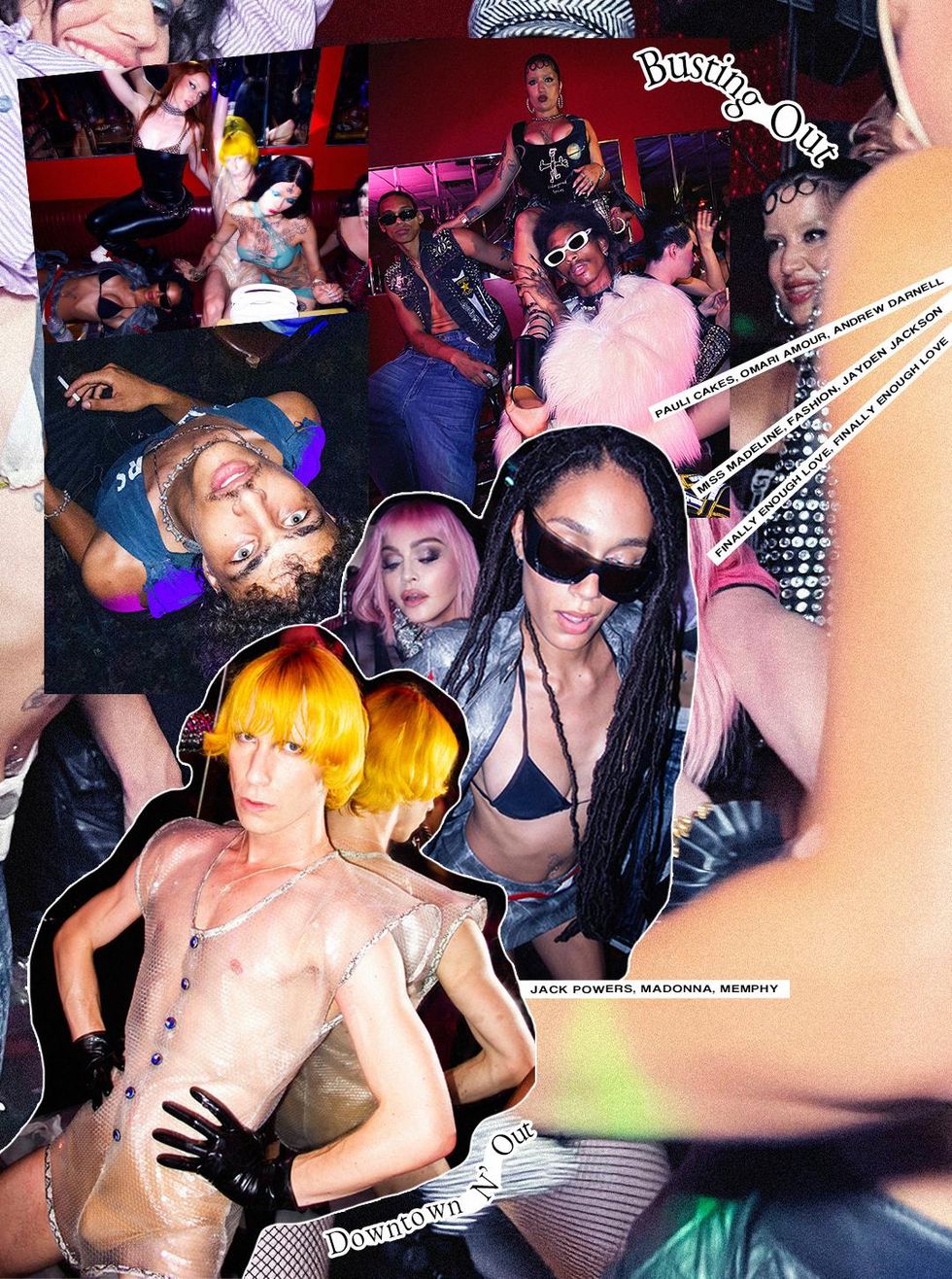
Madonna: I'm sorry for your loss. [Laughs]
Patrik: Seeing you two together at the roller disco, for fans, was so exciting. How much do you keep in touch and what is it like when you get together?
Madonna: We see each other socially occasionally, but it's not like I text him every day, or even every month. But we have a connection that is like, because we went through so much and our time together and our work together was so intense, that — and I can only speak for myself — it was a watershed moment for me. Every time I see Nile, it's like there is no time that's passed. So it's that kind of relationship. If I can also speak for you, I hope you feel the same way.
Nile: It's really true. I mean this with all sincerity because if you've ever seen any interview that I've ever done where they've mentioned your name, I always say I've never met anyone in my life that had the focus and the intensity that you had. I've said that forever. It was an interesting period for me, too. A lot of people don't realize this, but we did the album [Like a Virgin], we finished the album, but Madonna [the debut studio album] was still the focus. She was ready to go, like, “Come on, come on, let's put this out,” and then "Borderline" hit out of the clear blue sky. We didn't expect that. I know that you were definitely ready to put out Like a Virgin.
Madonna: –To bust out new music! Yeah, I was irritated...
Top: Issa Dragon (of The Dragon Sisters), Akeem, Miss Madeline, Andrew Darnell, Madonna, Odessa Dragon, Bachir (of The Dragon Sisters); Bottom: The Dupont Twins, Merlot, Pauli Cakes, Omar Amour
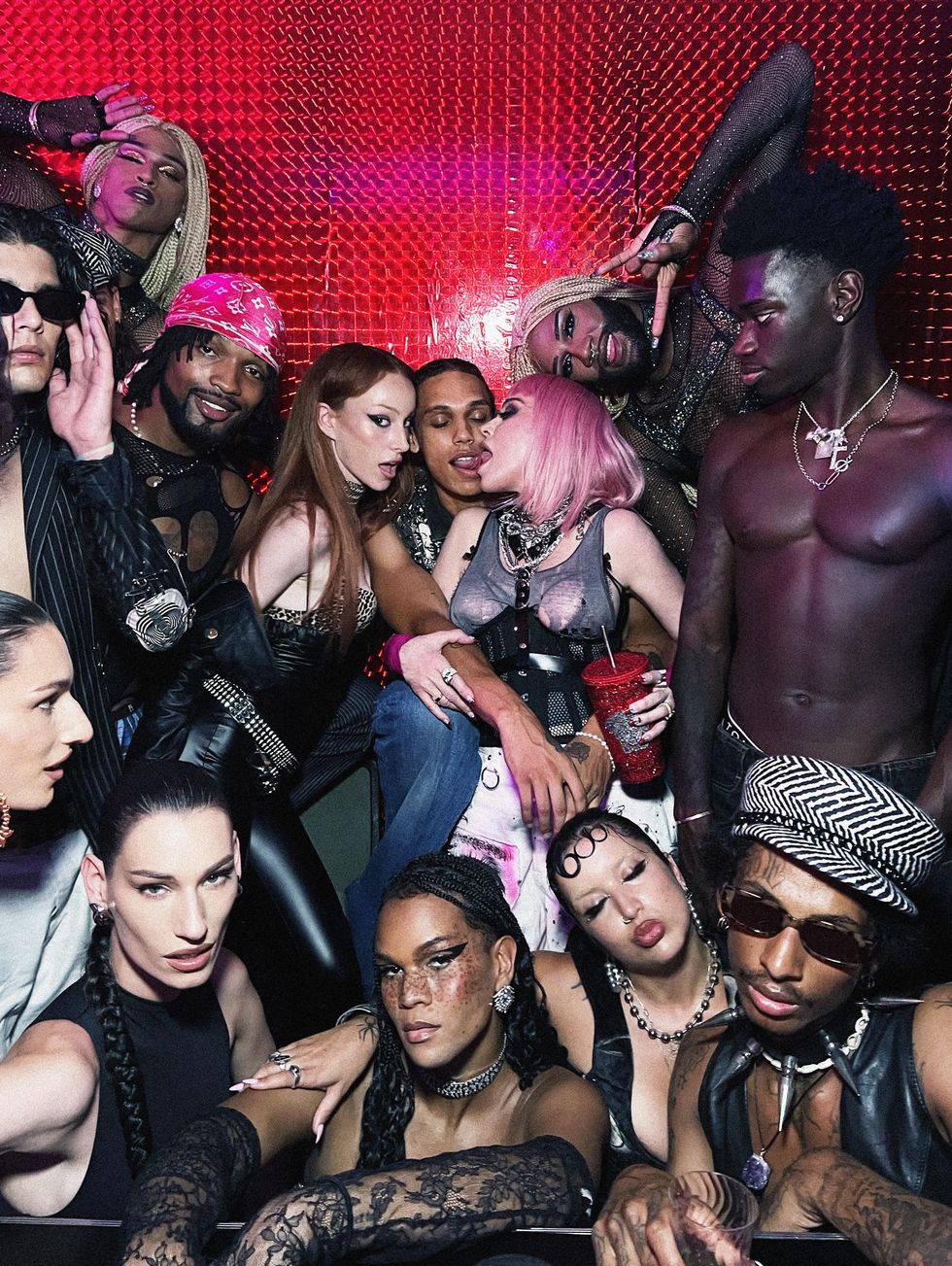
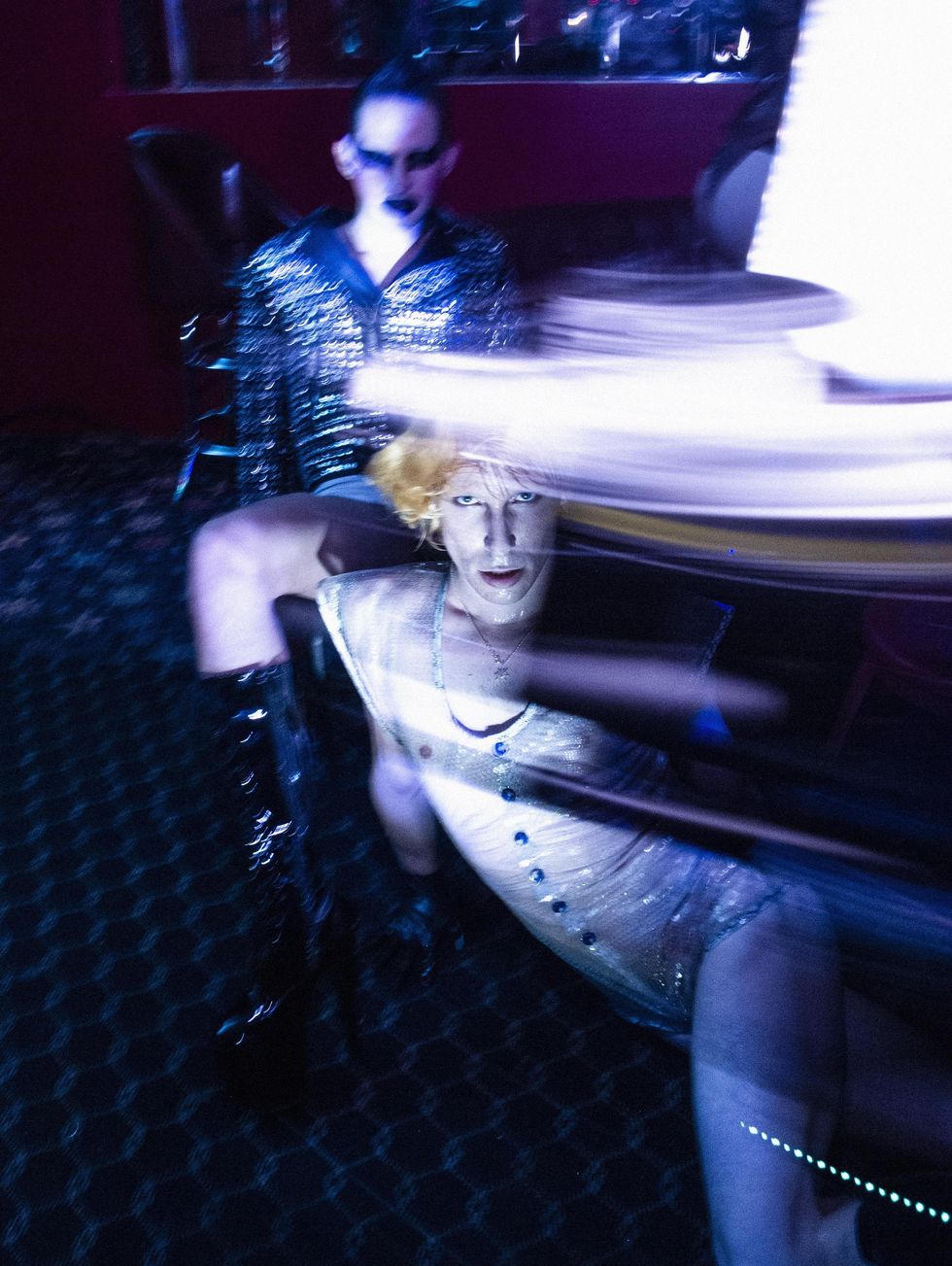
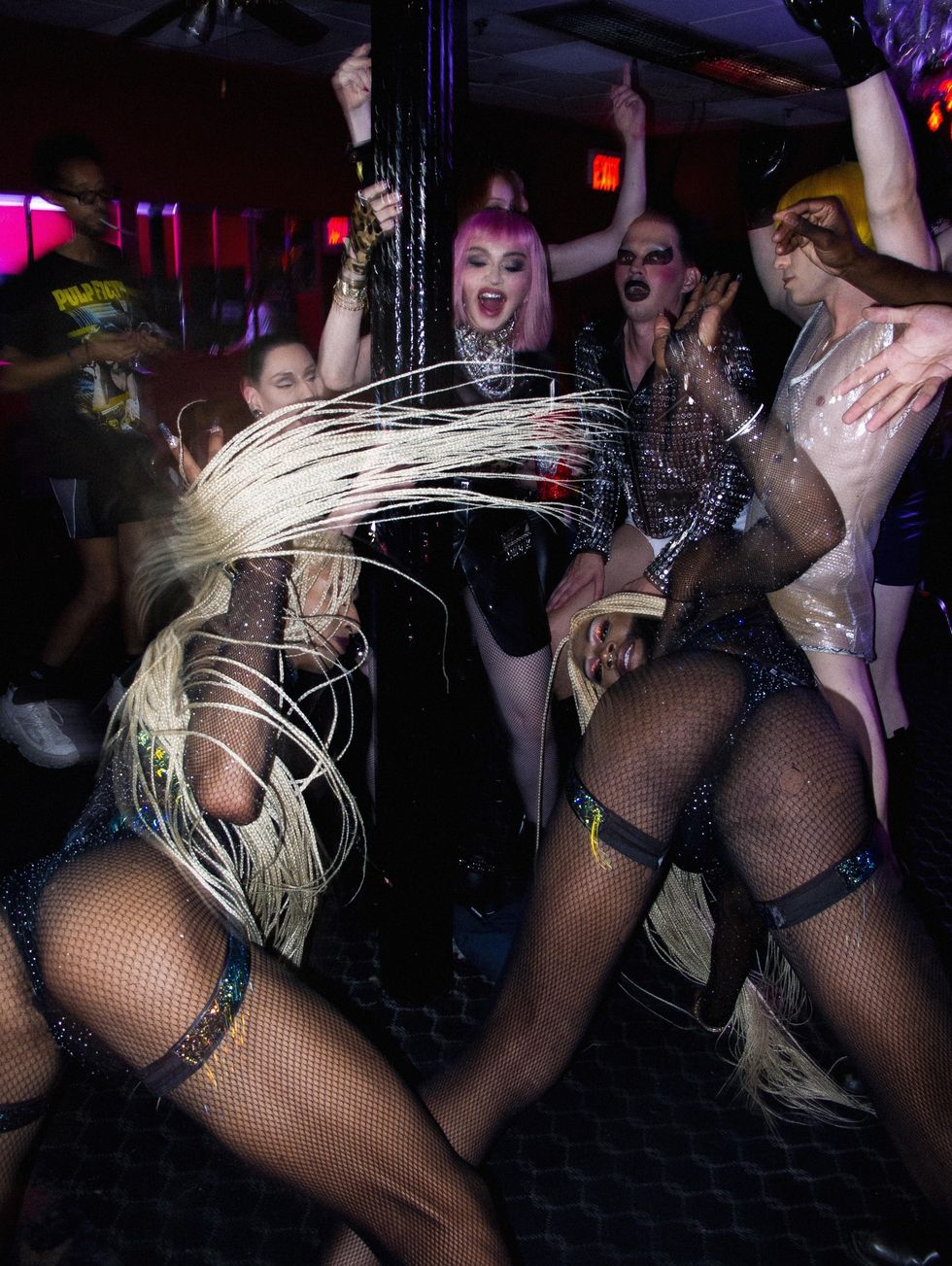
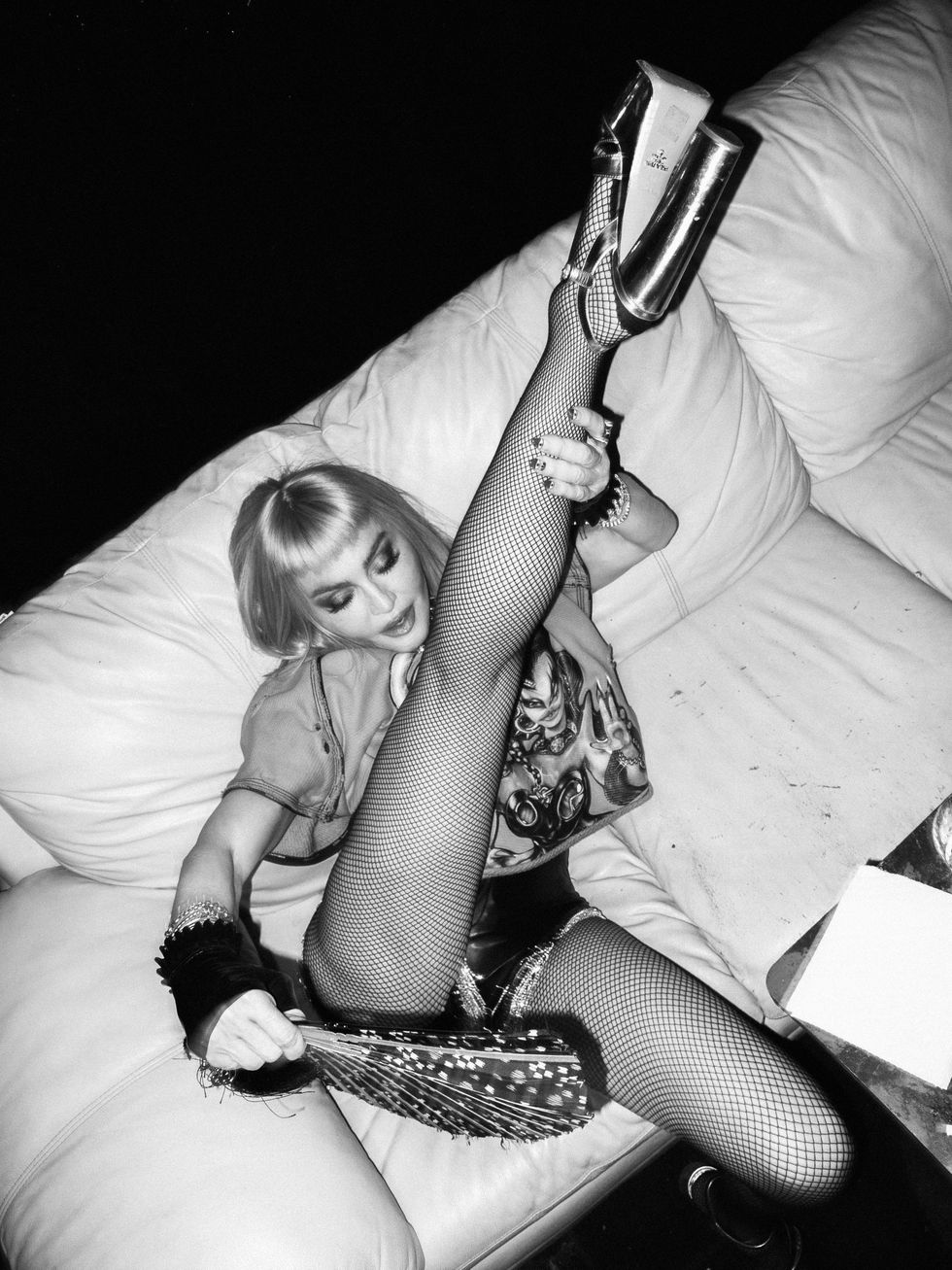
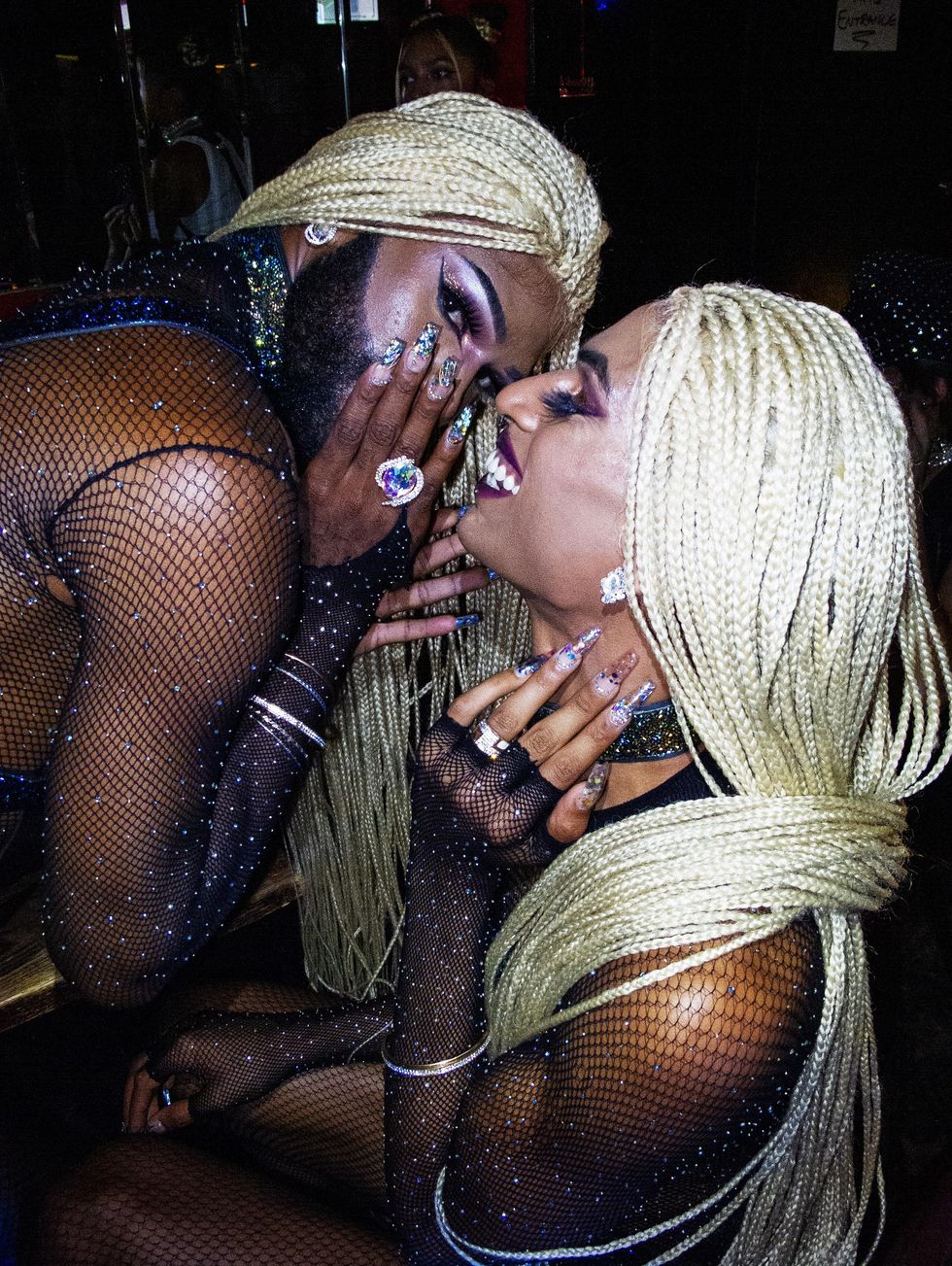
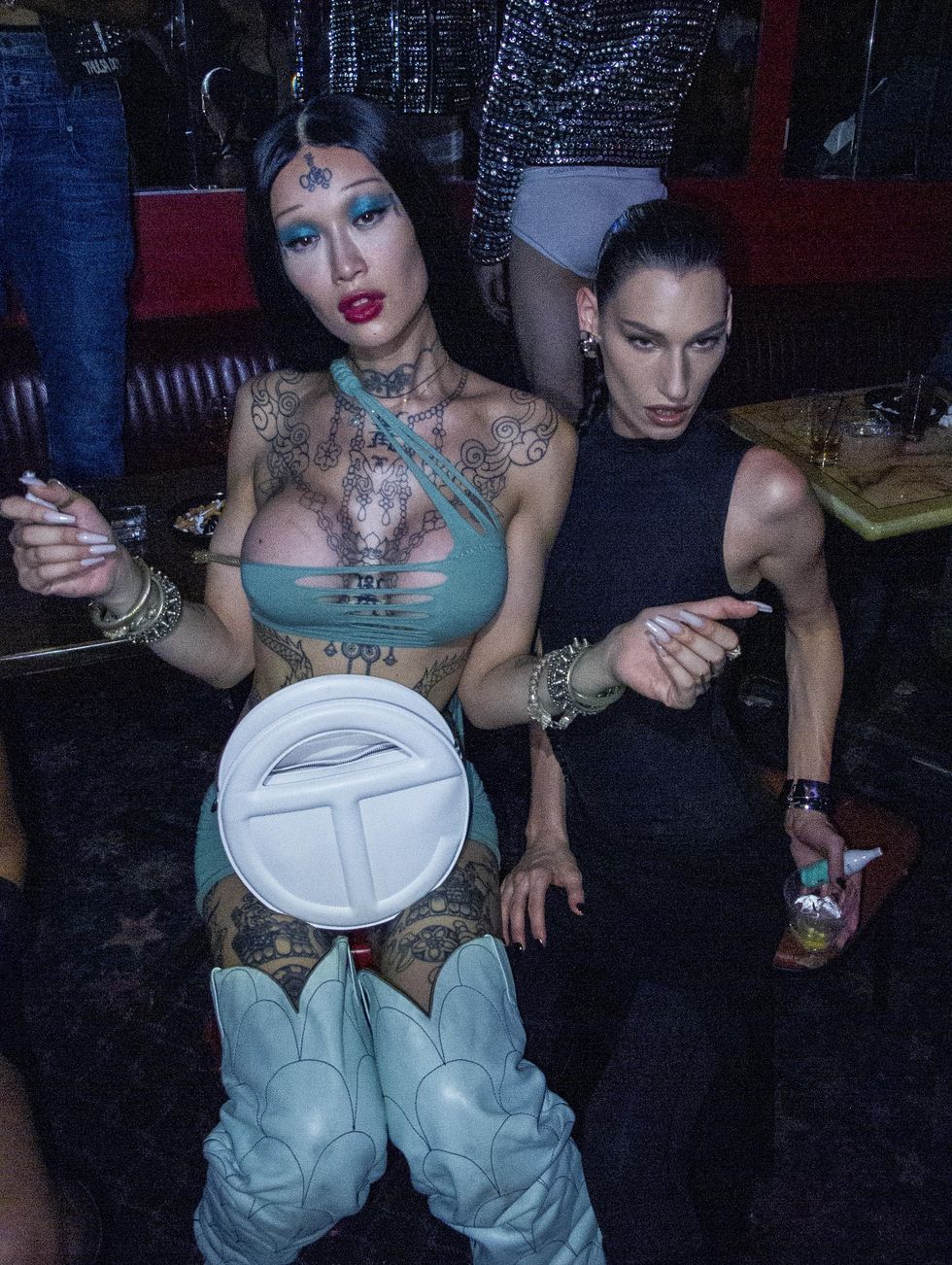
Nile: [Laughs]
Madonna: I was irritated that another song of mine was doing so well and now I had to wait to put something out that I was so excited about. Not that I didn't love Reggie Lucas and "Borderline" and my first record, but the thing is, when I put out my first record it didn't really do that well. People didn't know who I was and then they weren't sure who I was, so it kind of had a resurgence right at the time we were going to release "Like a Virgin." Or, not "Like a Virgin." Um, what was that other record called again? [Laughs] I'm joking.
Nile: [Laughs] She's fucking with you.
Madonna: I was super excited to release the work that I had done with Nile. I thought there were so many great songs on the record and then suddenly my first album started to become popular. I mean, it was a good thing. It was a good thing, but also frustrating.
Nile: It wound up being a great driver because I know when we finished the album we were both really really really happy.
Madonna: Mhm.
Nile: But what was interesting was that she was signed to a label where people were sort of a little bit unsure. I'll never forget when we played the album and Freddy [DeMann, Madonna's manager at the time] said, "Can it sound a little more like this?" And he put on fucking Thriller [laughs]. And we said, you know, Michael Jackson has been a star his entire life and he worked his way up to Thriller. So he said, "Well can you put a little more bass on it?" And all Madonna did was just write, "Bass Up," on the record. We never changed a thing. She just wrote it on the box the next time.
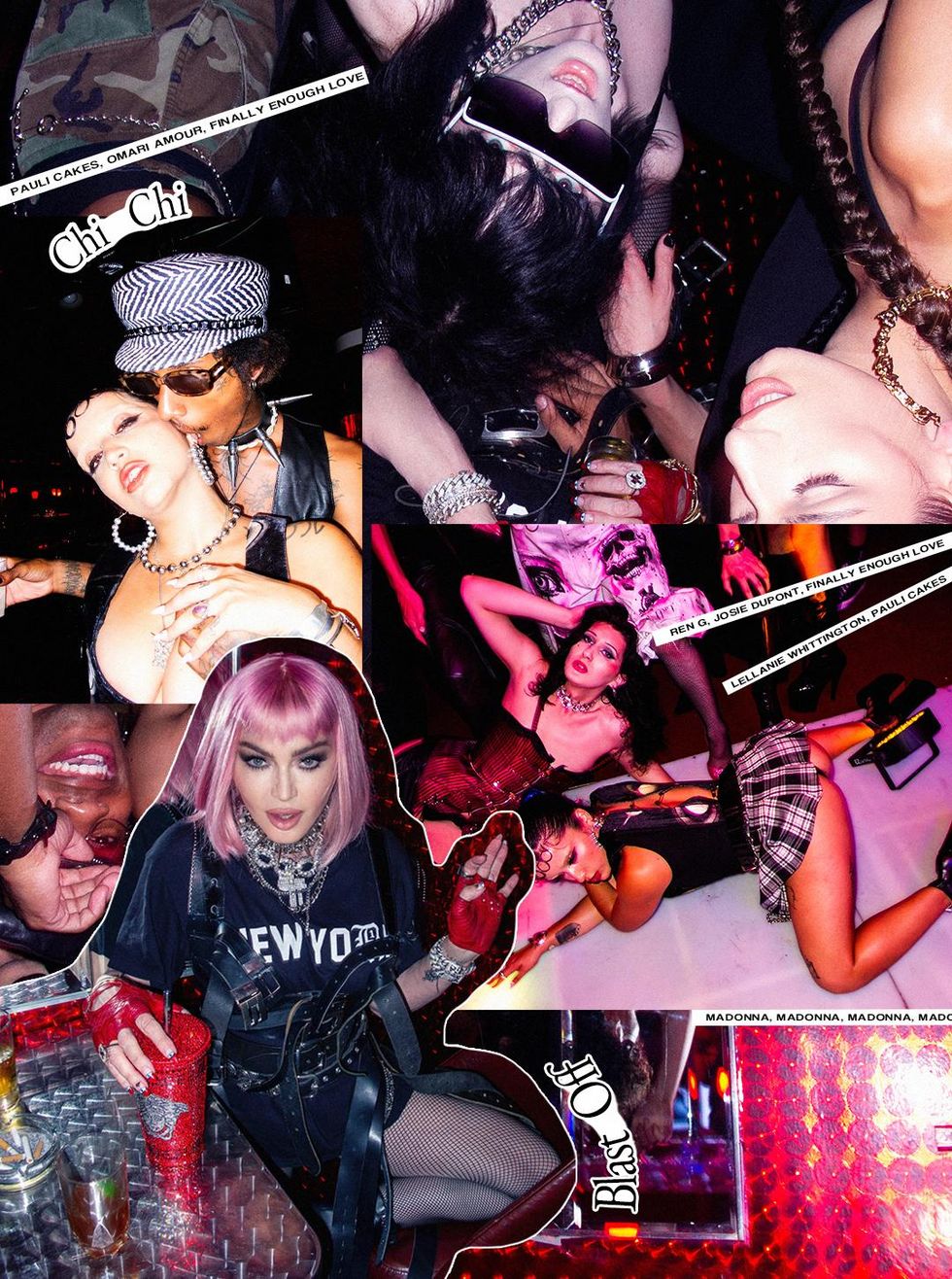
Madonna: But I mean, "Like a Virgin" does have a little bit of a "Billie Jean" bassline to it, in my opinion. It's similar sounding, not that we ever aimed for that. But I've done "Like a Virgin" live where I've segued from that song to "Billie Jean" just for 16 or 18 bars or whatever, and then gone back to my song, which is always fun to do.
Nile: Well that's just cool artistry. But I think for them, they didn't really understand what they had or they were nervous. When Michael called me — they won't know who Michael is — and he asked me what they should do, I said, "Shit, put out 'Lucky Star.' It's one of my favorite songs on the record. I mean, she's already served it, all the stores already have Madonna's album, so why wouldn't you push yet another single?" It just made sense to me. And we had to wait. We probably spent more time waiting, but then what you did at the MTV Awards was just complete genius! I believe it forced them to put the record out at that time.
Madonna: It did. It was quite scandalous and provocative also [Both laugh]. Not intentionally! Not intentionally, of course. I never do things intentionally. Well, sometimes I do...
Patrik: What do you remember from the time you spent working on the album together?
Nile: I swear to you guys, when I was working I always wanted to get to the studio before the artist. When we were working, I got there before Madonna one time, and after that she was always there before me, ready to go. I couldn't believe it and I kept thinking... I'm going to ask you today and I hope you'll tell me the truth: did you call my building and figure out what time I was leaving? I could never get to the fucking studio before her!
Madonna: [Laughs]
Nile: I wasn't late, but she was so ambitious and dedicated to the work process she would get there before me every day, and she would say, "Time is money and money is mine."
Madonna: I did and I still say that. But I no longer get to the studio before the producer. Those days are over. [Laughs]
Patrik: But I know you would also stay late and oversee all the recording sessions, the elements other artists don't always stay for. Is that true?
Madonna: Yeah, I mean I wanted to hear everything and I wanted to be there for all of it. Why not?
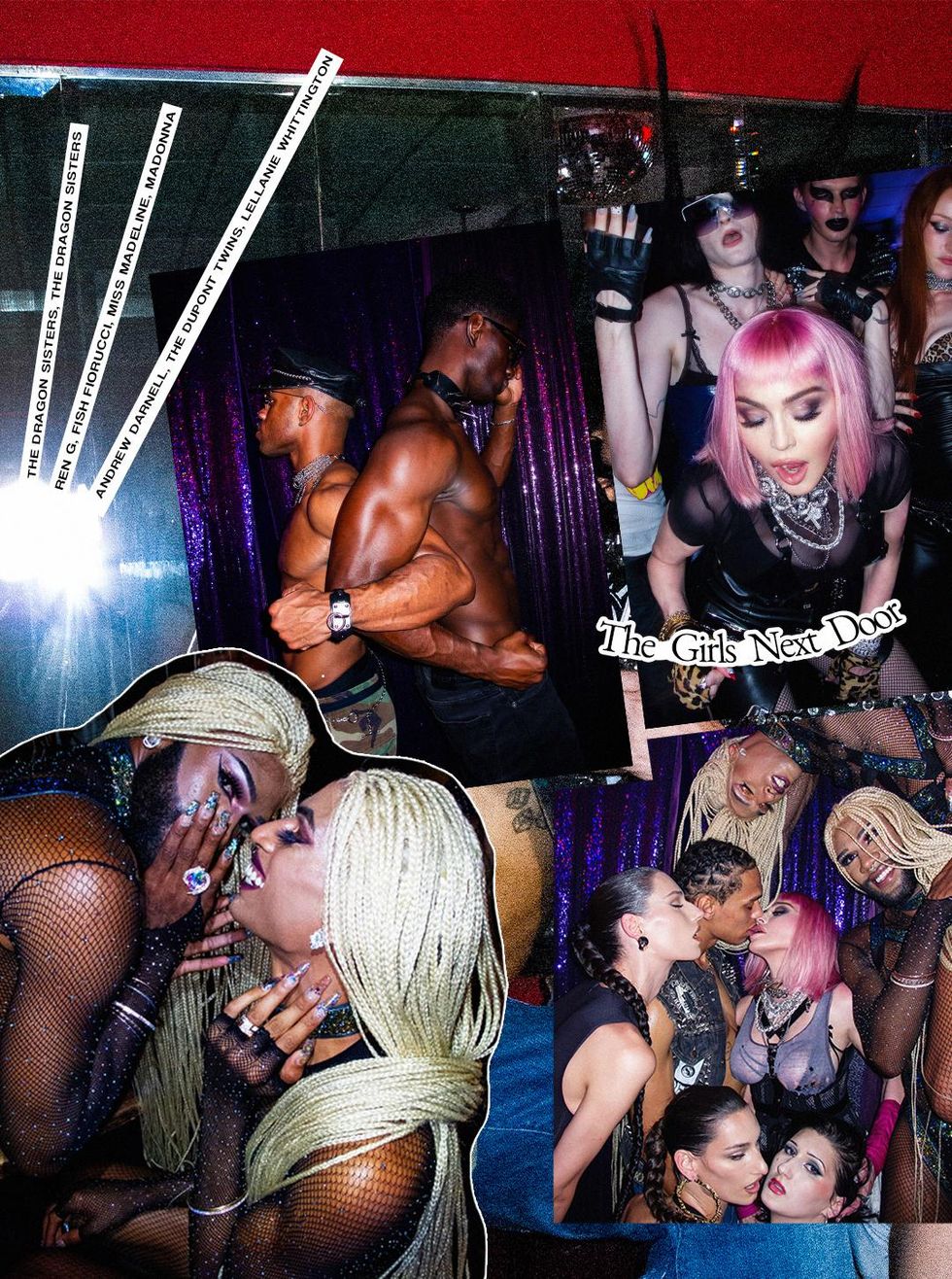
Nile: What I find interesting is that people might not necessarily think of Madonna as a great songwriter or composer and I am telling you, she absolutely is. She has a natural and immediate sense for what a great song is. She came to me with every song and she said to me, “Nile, if you don't love these songs then you can't do my record.” And I said, "By the time we finish the record I can guarantee that I will absolutely love them." She's just a great songwriter and I'm saying this as the Chairman of the Songwriters' Hall of Fame. I watched her write. We would ask her, “Can you add a bridge or a middle eight?”, and she would do it and it was always brilliant.
Madonna: Yup.
Patrik: What I have always admired about Like a Virgin is the originality. It doesn't sound like anything you would have expected Nile to do at that time. What did you see in Nile that made him right for this album and did it turn out how you had hoped?
Madonna: It turned out to be more than I had hoped. What I saw in Nile was, first of all, I was a huge fan of his music before I started working with him, but he's an incredible musician also. And he's a force. And so am I, so it was a perfect union. And we did meet in the middle. I wasn't referencing other people's music to make my record. People call Nile to do a version of Chic or to do his signature guitar sound, but this was really a union of two forces so it sounds as much like me as it does like him.
Nile: As many hit records as I have had, there is no album in my world that is as big as Like a Virgin. That's the biggest album I've ever worked on.
Madonna: It's also the provocation of the title. That was when I found my seat at the table of irony, because from then on it was me always trying to explain to people what the song was about. Do you know what I mean? Whether it was "Material Girl" or "Like a Virgin" or whatever, you can't take anything I say literally. Everything I say is said with irony or tongue-in-cheek or there are multiple meanings, and we live in a very literal world. Especially now. The confusion and the mystery and the wink and the smile were all very important elements, not only in the music and the record, but in terms of establishing me and what I stand for as an artist.
Patrik: You were pioneering pop. Nothing like it had existed before, which is important to remember. It's interesting to see, with Finally Enough Love, just how much that crossed over into the dance chart and the actual dancefloors, and how you have always been not only present in that world, but the most successful artist in it. Was that always part of the plan?
Madonna: It was just intuitive, I guess. Not conscious, not premeditated.
Nile: I've worked with hundreds of artists and with Madonna, there was nothing I could ask her to do that she wouldn't be willing to try. We didn't have autotune and shit like that in those days. She was always a workaholic very much like myself. I wanted her to be great and she wanted to be great too, so it was very much like, “Let's just do it, don't overthink it. Perform it as best you can and have fun with it.”
Madonna: Performance is part of it. A lot of times when I do make music in the studio, I always think about how I am going to perform it. Do you know what I mean? What's it going to be like doing this on stage? How am I going to move to it? How am I going to connect to the audience? I think that's something that a lot of artists now don't really think about. The only way we could connect to people in those days, because we weren't streaming anything, was through performing.
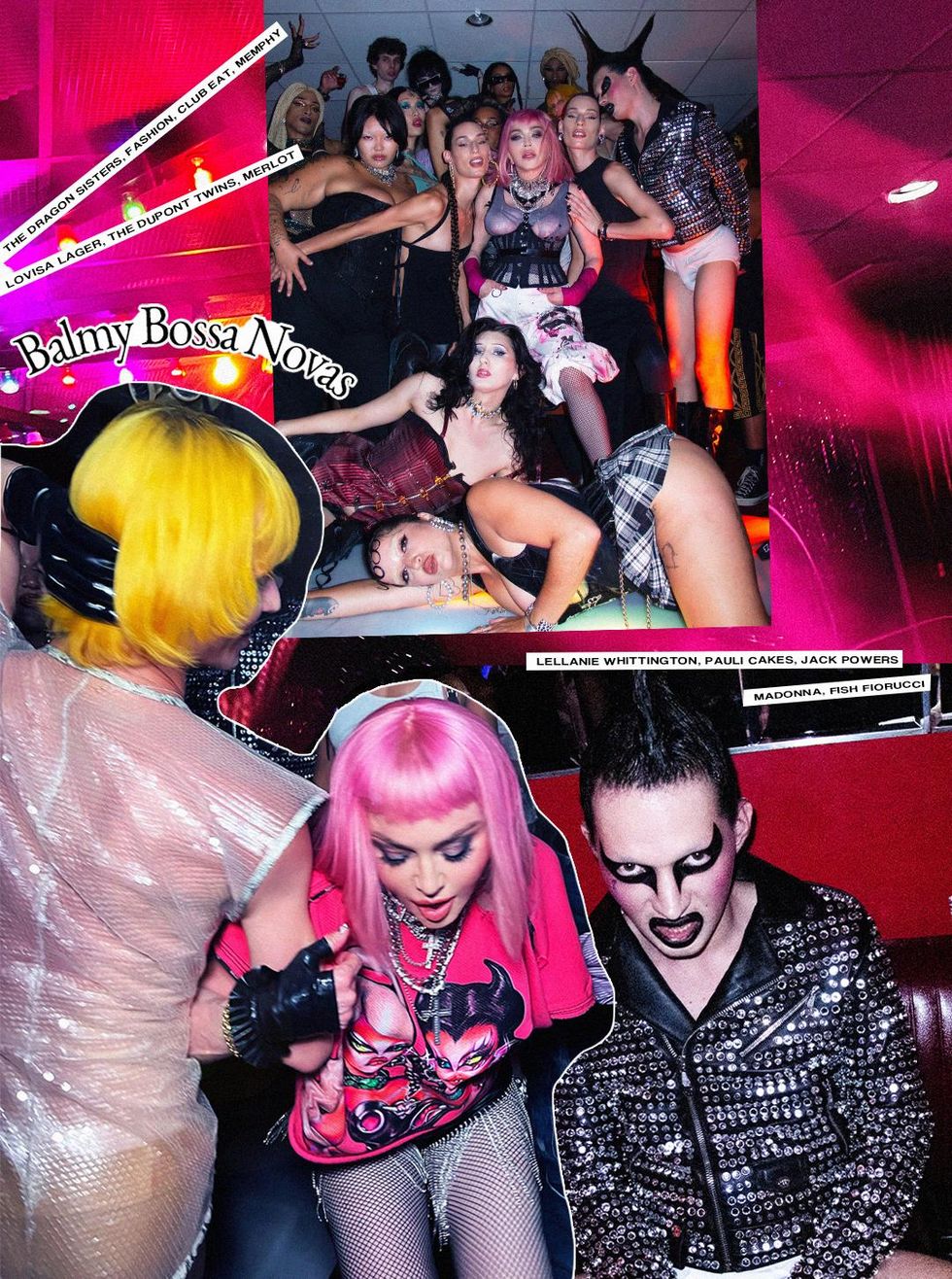
Nile: We're artists who come from this real, tactile world. It was sort of like the Roman Colosseum, thumbs up or thumbs down. People responded to your music by coming onto the dancefloor or leaving, or staying on the dancefloor. And you knew right away. If you can't satisfy the people right away, chances are...
Madonna: It wasn't going to happen.
Nile: Right.
Madonna: Also, when I work with people in the studio now and they play music for me, I always say, “How are you going to play this live?” It's always my first question.
Patrik: Is that coming from your instinctive desire to be hearing the music with lots of other people, in a physical space?
Madonna: I think it comes from me being a dancer, first and foremost, and training as a dancer, and coming up in the theater, viscerally connecting with an audience through my body and through music physically. When I began making music, that became a very important component. What is the lighting like? What are the costumes? How am I going to move? Can I sing and move at the same time? Where can I take a breath? It's all very important.
Patrik: And that hasn't changed, but dance music has changed a lot. What for you has changed the most about the experience of writing and producing dance music from the beginning to now?
Madonna: I think what's changed the most is just the songs. Songs have changed. The concept of songwriting. I'm just, give me a song. I need a beginning, a middle and an end. You know what I mean? I get confused by people's music. And also there are just too many artists on songs. I feel chaotic when I listen to them.
Patrik: There can be an overwrought quality to it.
Madonna: Yeah.
Nile: It's also because you have the ability to do that now. I don't know if I have said this to anybody before, but what's been great for me watching Madonna, watching her career, is that she is an amazing storyteller. You fucking believe her. I remember "Papa Don't Preach," she was like, "I'm keeping my baby." She's a real deliverer of a message.
Madonna: Messages, yeah.
Nile: It can be comedic, it can be clever, but she really demands your attention. I knew that just from hanging out together, waiting to put the record out. We would go to clubs and she'd walk in the room and — phew! — take the oxygen right out of the room. It was amazing.
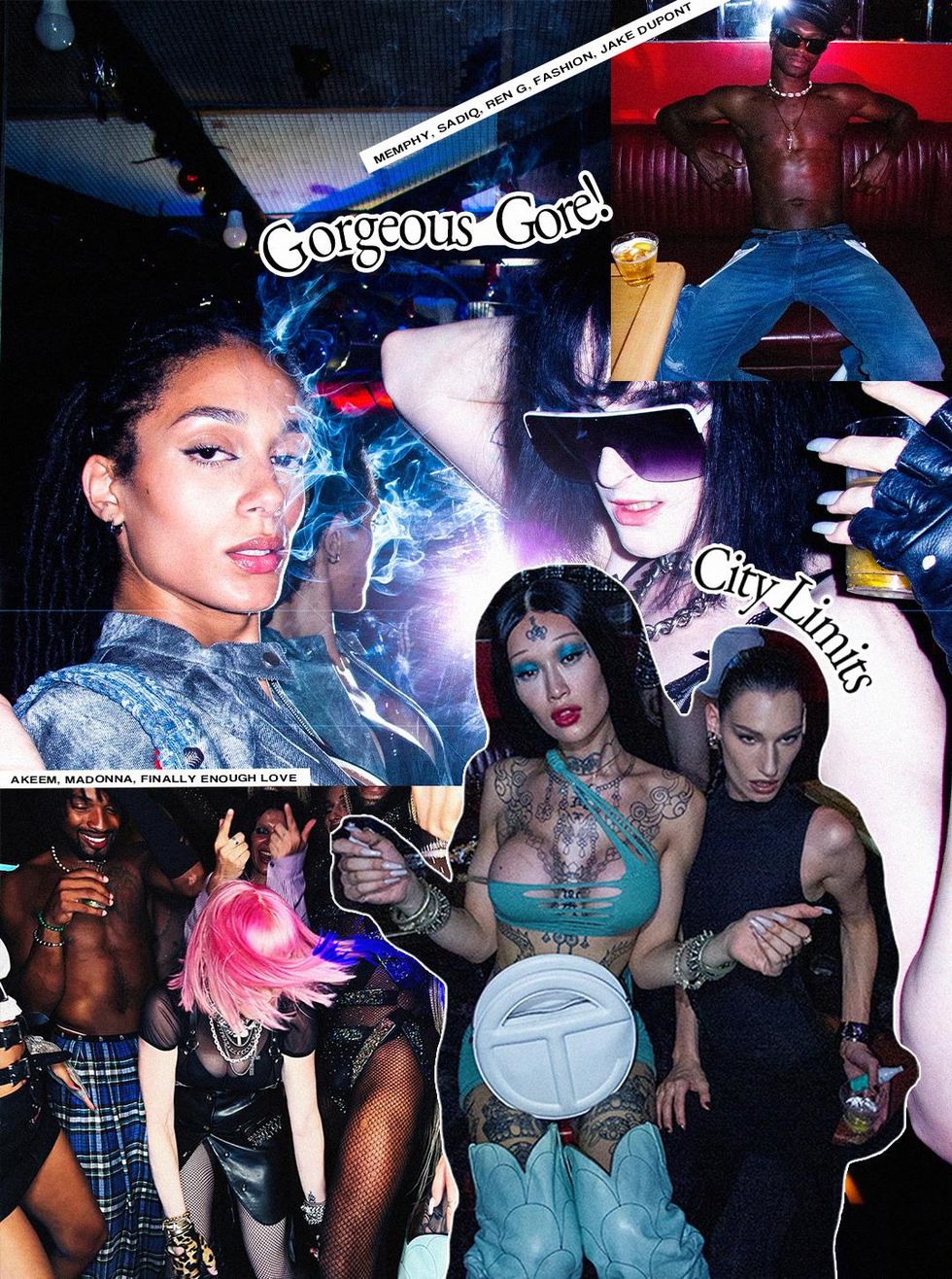
Madonna: But I also have, if you think about all the songs, whether it's "Like a Virgin" or "Material Girl" or "Express Yourself" or "Papa Don't Preach," I was very much invested in empowering women too and that was a very big part of the storytelling. Because I think, while women were making great dance records, I feel like in the early days, while the songs and melodies are really strong and the singers are really good, they weren't really invested in making women think, "Wow, I don't have to live in a man's world, living under the male gaze for the rest of my life. I can look at life in a different way and not settle. I can have my own voice and my own vision." So that was an important element.
Nile: And you can see that.
Patrik: You were also always pushing sound forward. Your music has never rested on its laurels. You never devoted yourself so stringently to one brand or were afraid to take risks. What fuels that exploration and progress. Is it boredom?
Madonna: I wouldn't call it boredom, I would call it curiosity — the desire to provoke people and wake people up. I hate repeating myself. I've been so lucky to work with so many fantastic producers along the way. I know we're talking to Nile, but it's also important to acknowledge that Nile has a specific sound and he pushed me to one level, and then I went to other levels with William Orbit or Mirwais or Stuart Price. I can't take all the credit. So much of it has to do with them. I chose and sought out people who would help me achieve the goal of taking it to the next level, which is why my alter ego is named Veronica Electronica.
Patrik: I know her... But in all this pushing forward, would you ever get back together, the two of you, and do something again? Maybe go on a tour... something on stage... another record...
Both: It would be fun.
Madonna: I will say first, I would love to work with Nile again. I don't know, though. I have no idea if there is gonna be room in the parking lot for your Rolls Royce.
Nile: [Laughs]
Madonna: I remember, I asked you the other night at the roller disco, was it a Rolls Royce or a Bentley?
Nile: Well, the thing is, it looked very much in that school...
Madonna: What was it?
Nile: It was a Chrysler.
Madonna: Shut the fuck up.
Nile: It was!
Madonna: It was not. I remember very distinctly living on Broome Street and throwing my key down to you, and I saw this swag-ass car in the front. And I was like, "Whoa! I'm gonna get one of those. Is that what you get when you sell a lot of records?" Didn't I try to drive that car once?
Nile: You did, absolutely. I was a car fanatic for a while. It's funny because I just sold all my cars.
Madonna: Really?
Nile: Yeah, I don't really drive now because that's time I could be working. So I have a driver driving me around. But I want to say too, working with you, it was amazing to see your ambition, your professionalism. I would love to work together again. I think we'd have a blast. We both have had amazing careers. We still love to communicate with great songs and that's never changed. I love having a pop hit. I love it!
Madonna: A pop hit with a twist, though. With a new sound.
Nile: It always has to be clever. It's gotta say something. There's always a wink, wink going on. I was telling Patrik about writing my first song, "Everybody Dance." It's 50 years ago now.
Madonna: And that song still holds up, it's so great. [Sings "Everybody Dance"] Classic, timeless, good ass music.

Photography: Ricardo Gomes
Styling:
Eyob Yohannes (for The Only Agency)
Hair (Madonna):
Andy LeCompte (for The Wall Group)
Makeup:
Wendi Miyake (using Pat McGrath Labs)
Videographer:
Courtney Harvier
Set design:
Eric Vidmar
Location:
Sugar Hill Supper Club (Brooklyn, New York)
Featuring:
Fashion
Memphy (at New York Models)
Pauli Cakes
Ren G and Chicken (of Club Eat)
Miss Madeline
The Dragon Sisters
The Dupont Twins
Omari Amour
Lellanie Whittington
Sorrelle
Tara Raani
Jack Powers
Lovisa Lager
Josue Hart
Merlot
Fish Fiorucci
Christian Smith
Akeem
Bachir
Rockwell (at IMG)
Karim (at IMG)
Jayden Jackson (at IMG)
Hudson Primo (at IMG)
Andrew Darnell (at IMG)
Sadiq (at Soul)
Joseph (at Soul)
Photography assistant: Zach Helper
Digital tech:
Jonathan Pivovar
Styling assistants:
Lee Christmas (First), Kristi Kruser (Second) and Tori Leung (Third)
Tailoring:
Shirlee Idzakovich
Hair assistant (Madonna):
Daniel Garofali (for Andy Lecompte Salon)
Hair (models):
Glenn Ellis (for Andy Lecompte Salon) and Corvette Hunt
Makeup assistants:
Ricardo Delgado and Grant Karpin
Art department:
Tom Karole and David Wright
Creative producer:
William Foster
Production coordinator:
Chelsea Wooten
Production assistants:
Erinn Abrams, Will Gavalindo, Elise Sullivan and Marcelle Gentile
DJ:
Jesse Marco
PAPER:
Editor in chief: Justin Moran
VP production:
Katie Karole
Managing editor:
Eliza Weinreb
Graphic designer:
Maren Anscheidt
Social media editor:
James Krolewski
Madonna wears: Versace, Prada, R13, Noir Kei Ninomiya, Agent Provocateur, Fluevog and Capezio
Special thanks to: Gentle Monster, Dsquared2, Telfar, Gucci, Givenchy, Swarovski, Chopova Lowena, Heaven by Marc Jacobs, Vivienne Westwood, Marine Serre, AREA, Paco Rabanne, Marc Jacobs, Philipp Plein, SEKS, Ruslan Baginsky and Eugenia Kim